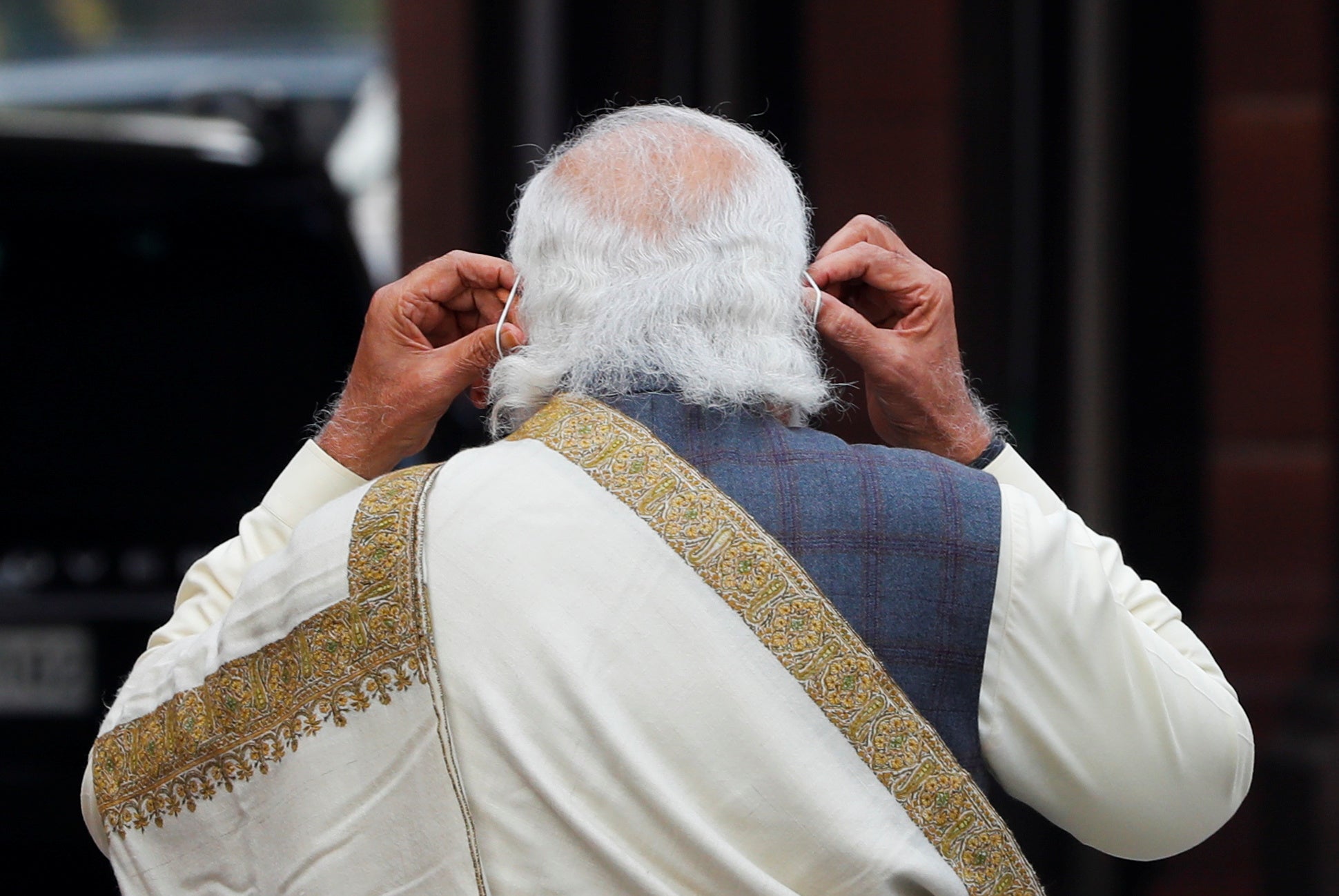Opposition boycotts presidential address as farmer unrest overshadows opening of crucial India budget session
Main opposition party warns government that protests will continue

Your support helps us to tell the story
From reproductive rights to climate change to Big Tech, The Independent is on the ground when the story is developing. Whether it's investigating the financials of Elon Musk's pro-Trump PAC or producing our latest documentary, 'The A Word', which shines a light on the American women fighting for reproductive rights, we know how important it is to parse out the facts from the messaging.
At such a critical moment in US history, we need reporters on the ground. Your donation allows us to keep sending journalists to speak to both sides of the story.
The Independent is trusted by Americans across the entire political spectrum. And unlike many other quality news outlets, we choose not to lock Americans out of our reporting and analysis with paywalls. We believe quality journalism should be available to everyone, paid for by those who can afford it.
Your support makes all the difference.More than a dozen opposition parties in the Indian parliament boycotted an address by the country’s president on Friday at the opening of India’s crucial annual Budget session, where the government is expected to outline plans to boost the pandemic-stricken economy.
India’s president Ram Nath Kovind, who occupies a largely ceremonial post, was speaking after more than two months of national farmers’ protests in India, described as the biggest protest in the world.
Speaking ahead of the presentation of the Modi government’s budget on Monday, Mr Kovind defended the controversial agricultural reforms that triggered the unrest, saying that after “extensive consultation the parliament approved three important farm reform bills seven months ago”, whose benefits have started reaching more than 100 million small farmers already.
The three new laws are designed to open up the agricultural sector to greater privatisation, but farmers fear they will end up worse off as big corporations profit from the changes. Their protests spilled over into violence this week when some farmers broke off from an agreed parade route to occupy Delhi’s historic Red Fort monument.
Mr Kovind praised the government for making efforts to “dispel the misunderstanding created in the context of these laws”, and insisted they would ultimately empower farmers, with new facilities and expanded markets for their produce.
And he criticised the violent elements of Tuesday’s protest in the capital, on a national holiday when the country celebrates the founding of its constitution.
“My Government has always respected freedom of expression and holding of peaceful agitations in a democratic set up. However, the recent acts of dishonouring the national flag and showing disrespect to the auspicious occasion of Republic Day are unfortunate," he told parliament.
His speech is unlikely to have gotten through to opposition parties in parliament, however, given at least 18 parties boycotted the address.
Rahul Gandhi of the Indian National Congress, the main opposition party, said they boycotted the president’s address because they “didn’t see the relevance of going there and we wanted to stand in solidarity with the farmers.”
Mr Gandhi, in a briefing, also said that the three farm laws will destroy the agriculture market of India, “allow[ing] unlimited storage of grains and will make it practically impossible for farmers to negotiate their prices, and if farmers have a grievance they cannot go to court.”
There was further unrest during the day on Friday, as a group of men clashed with farmers protesting at the Singhu border between Delhi and the adjoining state of Haryana. There were reports that a police officer had been stabbed in the violence.
News channels showed that the men, claiming to be local residents, entered the protest site, uprooted the tents of the farmers and threw stones. Police at the site initially stood by and watched the clash but later intervene to disperse them.
Mr Gandhi criticised the Indian government for being stubborn and said “what is being done to the farmers is absolutely criminal” as they are being beaten, threatened, bullied and discredited.
“The government needs to talk to farmers and needs to give a solution to farmers - which is repealing the laws and putting them in the wastepaper basket,” said Mr Gandhi, promising his party’s support for the farmers and warning that the protests are going to spread if the government fails to blink.



Join our commenting forum
Join thought-provoking conversations, follow other Independent readers and see their replies
Comments